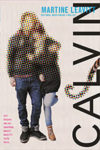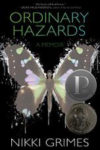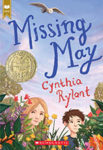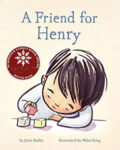Mental Illness, the Unwelcomed Elephant in the Great Green Room of Children’s Literature

No one escapes taxes, death, or mental illness. Directly or indirectly, we are all affected by mental illness, our own or someone we care about.
Almost everyone—as a child or or as an adult—copes at some time with mental illness. Perhaps depression or anxiety. Perhaps after a head injury coping with neuro-diversity. Researchers now recognize that part of chronic stress or long-term illnesses, including Covid, are mental health changes, especially depression.
Suicide is the second leading cause of deaths of our young people. Accidental injuries (car collisions, firearm injuries, opioid overdoses) are the #1 leading cause of teen deaths. #2 leading cause—suicide.
At the very age when young people should be full of hope, dreams, and life, many seek death. Why suicide? Silence, shame, self-blame, isolation, and hopelessness—all are invisible but powerful barriers to effective treatments. Silence can be deadly. Eight years is the average length of time between initial symptoms of mental illness and treatment. Imagine waiting eight years before seeking treatment of cancer or diabetes!
Stigma about mental illness continues to perpetuate silence and shame. Once we did not speak about breast cancer or being gay. Silence results in isolation, reluctance to seek treatment, feelings of shame, self-blame and guilt—all of which are toxic, often deadly.
Stigma has also meant that few books have portrayed kids and families coping with mental illness. Finally, this silence in books has been broken.
Take a look at these terrific books, from picture books to young-adult, that offer engaging stories with unforgettable characters who cope effectively with situations that include emotional, behavioral or mental challenges.
Fighting Words by Kimberly Brubaker Bradley was awarded a Newbery Honor. Ten-year-old Della will surprise you and charm you as she relates her journey as a foster kid with a beloved older sister who experienced sexual abuse and subsequent depression, attempted suicide attempt and finally, effective psychiatric hospitalization.
Martine Leavitt’s Calvin, winner of Canada’s Governor’s Award, puts the reader in the mind and heart of a young man diagnosed with schizophrenia. Leavitt’s book asks – what is reality?
In her memoir, Ordinary Hazards, Nikki Grimes describes the effects of trauma—self-blame, poor academics, avoiding peers, and exploding emotions. Journaling was her relief valve for her emotions. I encourage you to read this beautiful memoir-in-verse and I promise you this book is one you will long remember.
Missing May by Cynthia Rylant, a 1993 Newbery novel, is one of the first middle-grade books about grief that includes a young girl’s struggle to understand her “father’s” grief and to save him from a deepening depression that is deadly.
The picture book, A Friend for Henry, by Jenn Bailey and illustrated by Mika Song, is a delightful introduction to Henry, a child who is neuro-diverse, on the autism spectrum, and both delightful and surprising. Henry wants a friend. Through Henry’s eyes, we experience his search and perspective.
Why read a picture book about mental illness to a young child? Why encourage middle-grade or teen readers to read these books?
Because most children—no matter their socio-economic spheres—cope directly or indirectly with mental illness. Books help break open the stigma, isolation and silence that still shrouds this reality. Stories show us we are “not the only ones.”
Books are terrific and nonthreatening springboards for discussions. Books help model positive ways of seeking help. Books also invite all readers to “walk in another’s shoes” and see more clearly, compassionately, and more deeply.
Ann Jacobus and I are available to make a presentation about the importance of good books for young readers that include a theme of mental illness. I will be chairing a Mental Health / Mental Illness panel in late August as part of The Writing Barn’s series.




